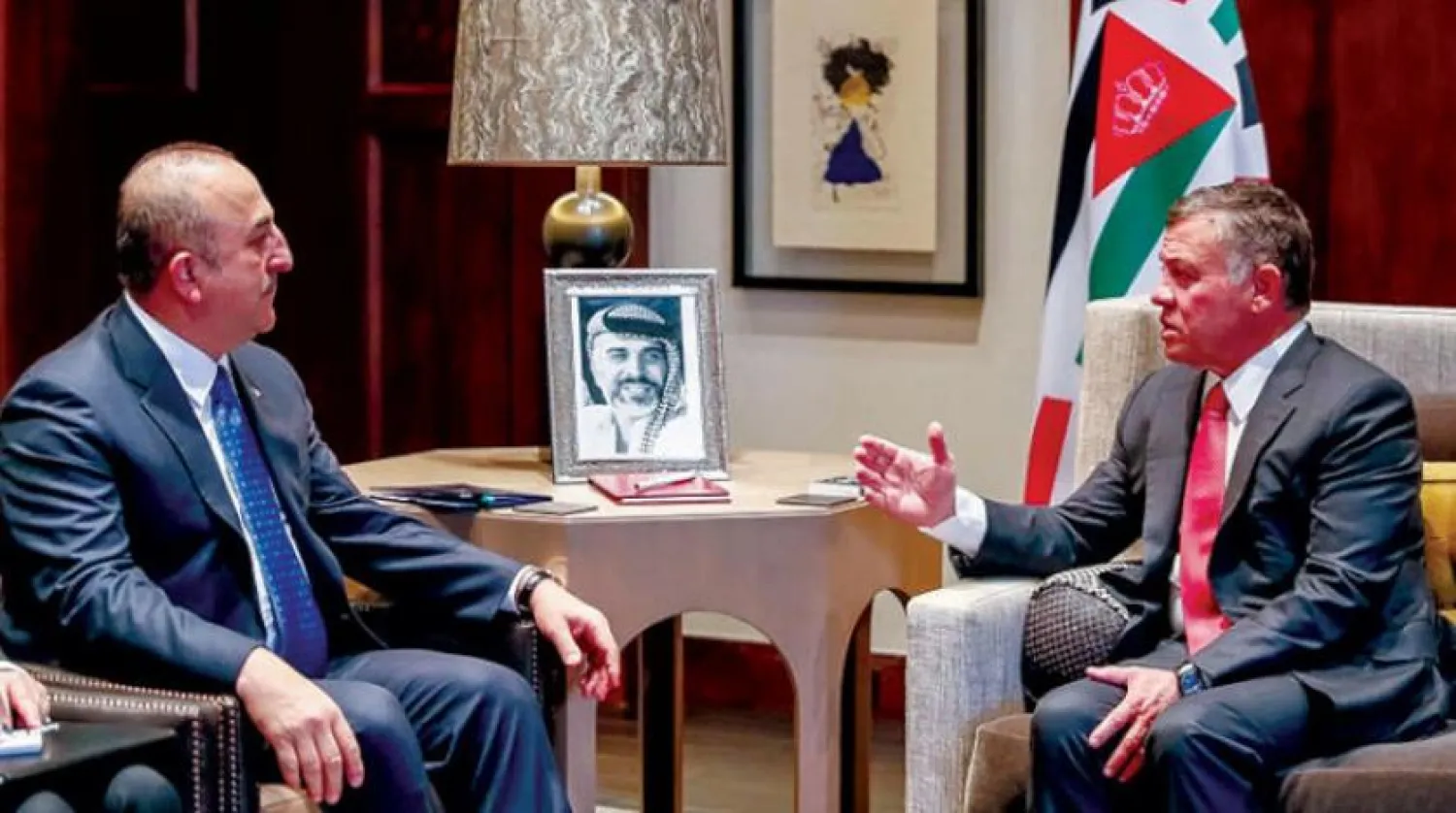Turkish Foreign Minister Mevlut Cavusoglu confirmed that Turkey has no hidden agendas concerning Syria, reaffirming that it only wishes the latter peace and stability.
Speaking at a press conference following his meeting with Jordanian counterpart Ayman Safadi in Amman on Monday, Cavusoglu said that Turkish operations were clear and aimed at terminating terrorists, pointing out that Turkey supports the territorial integrity of Syria and has full understanding in this regard.
He stressed that if Syrian regime forces enter Afrin to eliminate terrorism, Turkey welcomes it.
Speaking on Jordanian-Turkish relations, the top Turkish diplomat said that the two countries share positions on ruling out the United States decision on Jerusalem as wrong.
Cavusoglu also stressed that his country fully rejects US President Donald Trump’s decision on moving the US Embassy to Jerusalem and recognizing it as the official capital of Israel.
Both Jordan and Turkey have reached an understanding to establish a joint mechanism for cooperation between the two foreign ministries. Cavusoglu said that there is a common history between the Jordanian and Turkish communities, and there is a large number of Turkish students in Jordan studying Arabic, and some Turkish institutions are based in Jordan.
Cavusoglu revealed the increase in the number of Turkish flights to Jordan to support tourism, and that his country is working to visit the Turks to Jerusalem through Jordan.
A number Turkish official will be visiting Jordan, Cavusoglu added.
For his part, Jordanian Foreign Minister Ayman Safadi said that Cavusoglu’s visit came to reinforce Turkish-Jordanian agreements reached at three different summits, to enhance bilateral exchange and unite efforts in dealing with regional situation.
Safadi stressed during the press conference that the two countries share strong relations, pointing out that they are developing steadily and have entered year 71 with steady momentum and mutual interest.
He pointed out that challenges were discussed to develop economic relations and trade and cultural cooperation, indicating that it was agreed to sign the necessary agreements between the two countries, increase trade and investment exchange, and work to create nourishing conditions.
He added that Jordan and Turkey agree on the Palestinian issue being central and encourage primarily the two-state solution, which guarantees Palestinians their legitimate right to a state established, with East Jerusalem as its capital.









